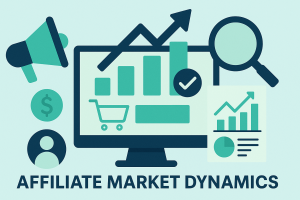
Share
Why don’t I just sell on Amazon? That’s a question we hear all the time from prospective clients who want to know why they need an affiliate marketing campaign when they can just put their product on one of the largest e-commerce retail platforms in the world.
And the thing is, maybe you should. Amazon is a trusted brand with a global reach and its most people’s first stop when they’re thinking about buying a new product.
But before you launch your account, it’s worth digging behind the numbers to understand what you’re really signing up for when you become a member of Amazon’s marketplace.
Commission
According to the latest analytic data, Amazon was the fourth-most visited website in the United States and it received 2.4 billion page visits in October alone. That’s a massive audience, but there’s a real price to be paid for tapping into it.
If you fully enroll in Amazon’s seller program, you can easily pay a commission rate of over 30% on every item you sell, leaving you with razor-thin profit margins (there’s a reason Jeff Bezos owns a rocketship and a yacht).
In affiliate marketing, your commission rate and incentive structure are entirely negotiable. That means you can find affiliates who will work within your budget and generally speaking, most affiliates will usually charge a commission that’s closer to the 10% range.
Data
One of the most valuable parts of working with an affiliate is that they’ll push your customers directly to your website. This means that not only do you collect money from all of your sales but you’ll also own all of your own sales data.
It’s impossible to optimize your sales strategy if you don’t have essential information about who your customers are, how they found your product and what deals they’re most likely to respond to.
But when you sell on Amazon, they’ll tell you when you make a sale…and that’s it. All of your sales data goes into a black box that you will never see. They own it forever.
So every time you sell a product, Amazon isn’t just taking a commission, they’re also taking your customers’ information as well.
Cost-Per-Acquisition
Cost-Per-Acquisition is a key metric in sales that tells you what it costs to acquire a new customer. A major appliance brand we work with was shocked when our CFO John M explained to them the difference between Amazon and affiliate CPA rates.
“I was speaking with a client about the costs associated with different marketing channels and they said that once they totaled up all of their fees, they were paying around 30% in CPA costs for every product they sold on Amazon. I showed them that by working through affiliate marketing partners, they could get that number down to 7%. They were blown away by the savings and the affiliate program that we set up for them is now doing over $5 million a month.”
Ok, so maybe we’re a little (a lot) biased. But the simple fact is that the numbers speak for themselves. If you want to keep more of your money and all of your data (which, yes, you definitely do) then an affiliate marketing campaign will deliver the most value for your brand.
On the other hand, if the reason you started your business is so that you could pay to fuel up a billionaire’s spaceship, then maybe give Amazon a closer look.



